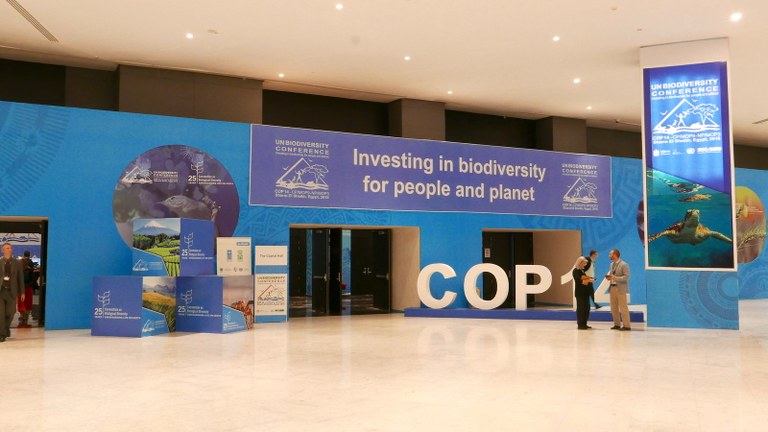A look back at the CBD COP 14
The 14th Conference of the Parties to the Convention on Biological Diversity (CBD) was held at Sharm-al-Sheikh in Egypt, between the 17th and 29th November of 2018, marking the very first time that the conference had been held in the Middle East. The event attracted a total of 3,800 participants from various countries and walks of life, such as governmental and non-governmental organisations, academia, and private sector.
What is the COP CBD and Why Does it Matter?
The Convention on Biological Diversity first came into being on the 22nd of May, 1992. The CBD was soon opened up for signature on the 5th of June, 1992. This was done at the UN Conference on Environment and Development, also known as the Rio “Earth Summit”.
The CBD soon entered into a working and administrative position, soon gathering a number of different people and parties under its umbrella. As of now, there are a total of 196 different parties who are part of the convention, which has its aim defined as the conservation of biodiversity, its sustainable usage, and a just and equitable distribution of all the benefits that human beings receive from nature.
The Conference of the Parties is the main governing body of the Convention with three different bodies meeting regularly for that purpose. They are the Subsidiary Body on Scientific, Technical, and Technological Advice (SBSTTA), the Working Group on Article 8(j) (traditional knowledge), and its relevant provisions, as well as the Subsidiary Body on Implementation (SBI).
Over the years, the CBD has led to a number of key decisions towards the protection of biodiversity, including:
- The Jakarta Mandate on Marine and Coastal Biological Diversity (COP 2, November 1995, Jakarta, Indonesia);
- A resource mobilization strategy, and scientific criteria and guidance for marine areas in need of protection (COP 9, May 2008, Bonn, Germany);
- The Strategic Plan for Biodiversity 2011-2020, including the Aichi Targets, and a decision on activities and indicators for the implementation of the resource mobilization strategy (COP 10, October 2010, Nagoya, Japan).
These are just a few of the major achievements made over the years in the framework of the CBD and COP aiming to turn the war against irreparable biodiversity damage.
Overview on the CBD COP 14 Conclusions
Post-2020 preparatory process under the Convention: The Conference set up an intersessional open-ended working group (OEWG) on the post-2020 global biodiversity framework.
Spatial planning, protected areas, and other effective area-based conservation measures (OECMs): Delegates underlined the lack of adequate human, financial, and administrative resources slowing the progress of Protected Areas integration and mainstreaming. In the decision (UNEP/CBD/COP/14/L.19), the COP encourages the parties to apply the voluntary guidance on the integration of protected areas and OECMs into wider land- and seascapes and mainstreaming across sectors to contribute, inter alia, to the SDGs.
Marine Litter and underwater noise: In the decision (UNEP/CBD/COP/14/L.24), the COP urges parties to increase their efforts aimed at:
- avoiding, minimizing, and mitigating the impacts of marine debris, in particular plastic pollution, on marine and coastal biodiversity and habitats;
- addressing the potential impacts of deep-seabed mining on marine biodiversity; and
- protecting biodiversity in cold-water areas.
Climate change and ecosystem-based approaches: In the decision (CBD/COP/14/L.23), the COP expresses deep concern over failure to hold temperature increase well below 2°C above pre-industrial levels and emphasizes the importance to maintain the integrity of ecosystems. The voluntary guidelines for the design and effective implementation of ecosystem-based approaches (EbA) to climate change adaptation and disaster risk reduction (Eco-DRR) were adopted. The voluntary guidelines are intended to be used as a framework for planning and implementing EbA and Eco-DRR.

